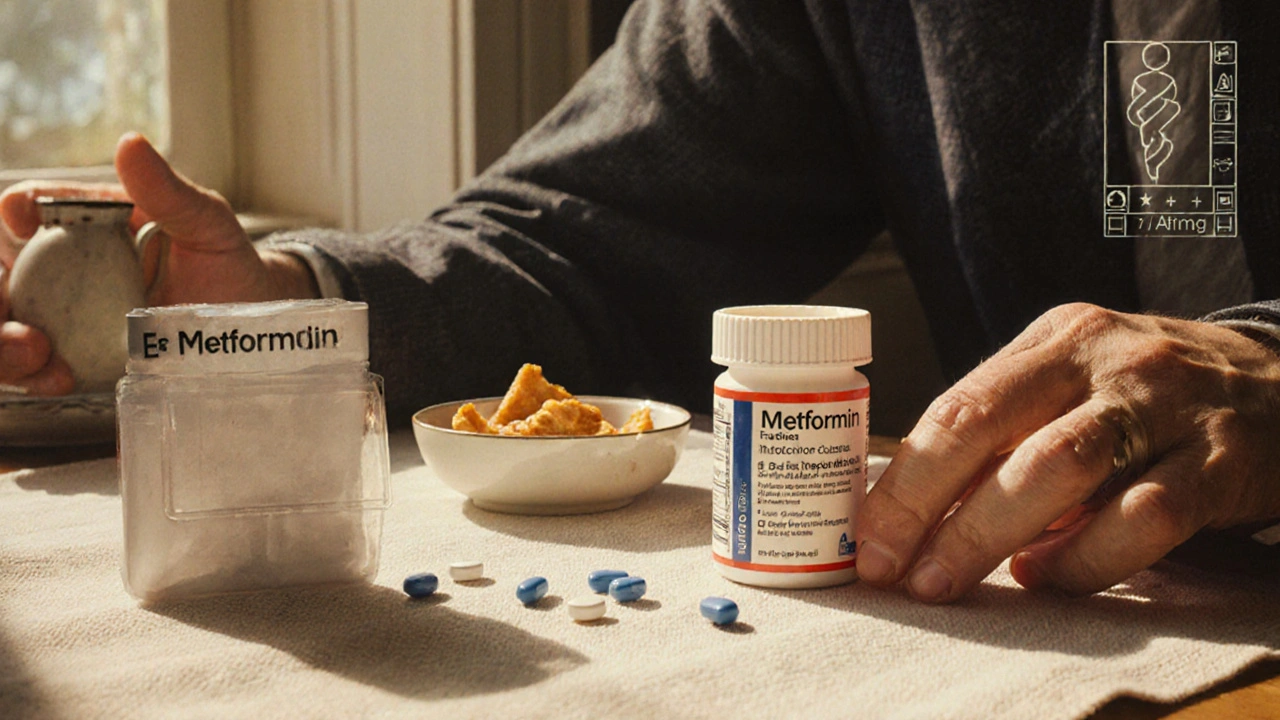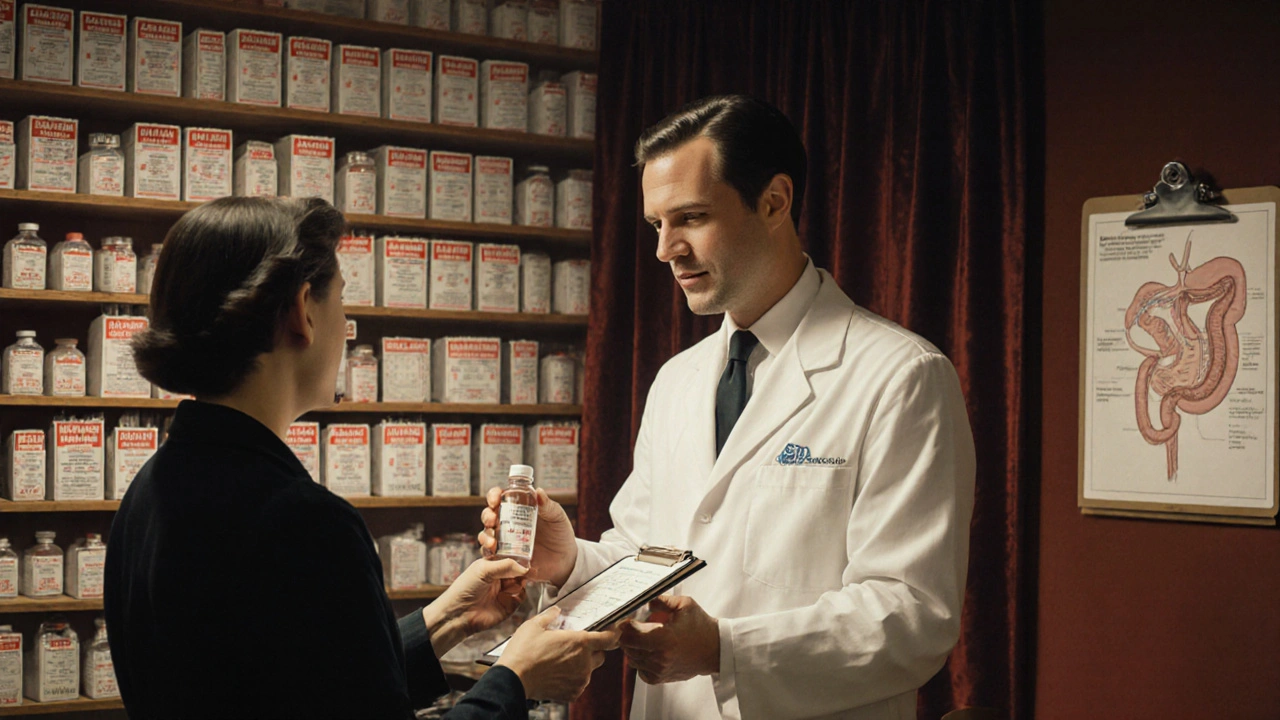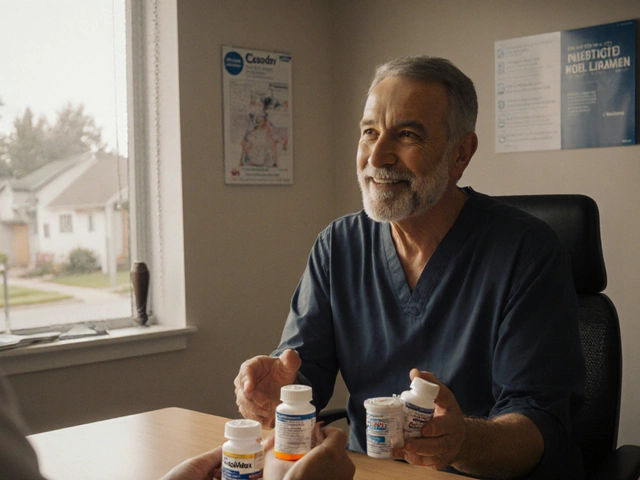Medication Absorption Adjuster
Adjust Your Medication Dosage After Surgery
Based on your surgery type and medication details, this tool calculates recommended dosage adjustments for optimal absorption and effectiveness.
Important: This tool provides general recommendations only. Always consult with your healthcare provider or bariatric pharmacist before making any medication adjustments.
What Happens to Your Pills After Bariatric Surgery?
After bariatric surgery, your body doesn’t just lose weight-it changes how it handles every pill you swallow. If you’re taking medications for high blood pressure, thyroid issues, depression, or diabetes, you might notice they’re not working like they used to. That’s not in your head. It’s physics, chemistry, and anatomy all working against you.
Take levothyroxine, for example. Many patients need up to 50% more after a Roux-en-Y gastric bypass. Why? Because the part of the intestine where this drug gets absorbed-the duodenum-is now bypassed. Your stomach is smaller. Your acid levels are lower. Food moves through faster. And pills that used to dissolve slowly? They’re shooting through your system before they even start working.
Not All Surgeries Are the Same
There’s a big difference between a sleeve gastrectomy and a gastric bypass. In a sleeve, your stomach is reduced to the size of a banana. The rest of your gut stays intact. That means most medications still get absorbed normally-maybe with a 15-20% drop in effectiveness. But in a gastric bypass, your stomach is turned into a tiny pouch, and the first foot or more of your small intestine is completely skipped. That’s where most drugs are absorbed. So now, your body has to make do with less surface area, less time, and less acid.
Here’s the hard truth: if you had a gastric bypass, your body absorbs about 30% less of many medications. For drugs like extended-release metformin, oxycodone CR, or glipizide XL, that means you’re getting less than half of what you should. That’s not a small change-it’s the difference between controlling your blood sugar and ending up in the ER.
Why Your Extended-Release Pills Don’t Work Anymore
Extended-release (ER) pills are designed to release medicine slowly over 8 to 12 hours. They rely on traveling through your entire digestive tract. But after a bypass, your pills might zip through in under an hour. The coating never has time to break down. The drug doesn’t get released. It just exits your body-untouched.
Studies show that 47% of ER medications need to be switched to immediate-release versions after gastric bypass. That means instead of taking one pill a day, you might need three or four. It’s inconvenient. But it’s safer than having your blood pressure spike or your seizures return because your meds didn’t work.
Drugs like metformin ER, warfarin, and certain antidepressants are especially risky. Mayo Clinic data shows patients on metformin ER after bypass had 30-40% lower blood levels. That’s not a minor dip-it’s treatment failure.
What About Acid-Dependent Drugs?
Your stomach used to be super acidic-pH around 2. That’s how pills like ketoconazole, itraconazole, or even iron tablets dissolve. After surgery, your stomach pH rises to 5 or 6. It’s almost neutral. That means these drugs don’t dissolve properly. They pass through like pebbles.
Iron supplements are a classic example. Many patients develop anemia after surgery-not because they’re not eating enough, but because their body can’t absorb the iron from pills. The fix? Switch to liquid iron, take it on an empty stomach, and pair it with vitamin C. Some patients even need IV iron because pills just aren’t enough anymore.
The same goes for thyroid meds. Levothyroxine needs acid to be absorbed. After surgery, many patients need to switch from tablets to liquid, or take them 30-60 minutes before breakfast. Even then, doses often need to go up.

What About Food-Dependent Drugs?
Some medications need food to be absorbed. Mycophenolate (used for organ transplants) is one. So is itraconazole. After surgery, you’re eating less. Sometimes, you’re not eating at all for hours. That means the drug has nothing to bind to.
One study found patients on mycophenolate after gastric bypass needed 30-40% higher doses just to reach the same blood levels as before. Take it without food? It’s useless. Take it with a tiny snack? It might work. But what if you’re not hungry? That’s the daily struggle.
What Should You Do?
You can’t guess your way through this. Medication changes after bariatric surgery aren’t optional-they’re essential.
- Get a full med review with your pharmacist or bariatric team within 30 days of surgery. Don’t wait for symptoms.
- Switch ER pills to immediate-release unless your doctor says otherwise. This isn’t a suggestion-it’s standard practice.
- Use liquids when possible. They absorb better in the first 3-6 months after surgery.
- Take acid-dependent drugs on an empty stomach-at least 30 minutes before food.
- Take food-dependent drugs with a small meal, even if you’re not hungry.
- Track your symptoms. If your blood pressure is spiking, your mood is crashing, or your pain isn’t controlled, your meds might be failing.
Therapeutic Drug Monitoring Is Not Optional
For drugs with narrow therapeutic windows-like warfarin, phenytoin, cyclosporine, or lithium-you need blood tests. Regular ones. Not every six months. Every few weeks at first.
After gastric bypass, 60% of patients on warfarin need their dose increased by 25-35%. If you don’t test your INR, you could bleed internally-or form a deadly clot. The American Society for Metabolic and Bariatric Surgery says monitoring is required for 12 key drug classes. Ignoring it is dangerous.

The Real-World Cost of Getting It Wrong
A 2022 survey found that 63% of community pharmacists had seen at least one patient suffer a medication failure directly because of bariatric surgery. One Reddit user shared how his levothyroxine dose went from 75mcg to 125mcg after bypass. His TSH stayed normal only after the change. Another patient reported her antidepressant stopped working-until her pharmacist switched her from a tablet to a liquid.
The FDA has added bariatric warnings to 17 drug labels since 2022. The European Medicines Agency now requires new drugs to include bariatric absorption data. This isn’t a niche issue anymore. It’s mainstream.
What’s Changing in the Future
There’s new hope. Companies are developing pH-adaptive capsules that work in low-acid environments. Subcutaneous implants, like the exenatide pump, bypass the gut entirely-perfect for bypass patients. AI-powered dosing calculators are now used in 83 U.S. hospitals to predict the right dose based on your surgery type, weight, and meds.
Soon, pharmacogenomic testing might be standard. If you’re a slow metabolizer of certain drugs, your dose might need to be higher-even before surgery. This isn’t science fiction. It’s happening now.
Bottom Line: Don’t Assume Your Pills Still Work
Bariatric surgery saves lives. But it doesn’t make your body forget how to handle medicine. If you had surgery and still take pills, you’re at risk. Not because you’re doing something wrong. Because the system wasn’t built for you.
Ask your doctor: "Has my medication been checked for absorption after surgery?" If they look confused, bring this article. Or better yet, ask to see a pharmacist who specializes in bariatric care. There are more of them now than ever.
Your health after surgery depends on more than diet and exercise. It depends on whether your pills actually get into your bloodstream. Don’t leave that to chance.




Georgia Green
November 17 2025Just had my RYGB last year and switched my metformin ER to immediate-release. Life-changing. Took me 3 months to figure out why my sugar was spiking. Pharmacist saved me.
Also started liquid levothyroxine. No more brain fog.
Do not ignore this. It’s not hype.